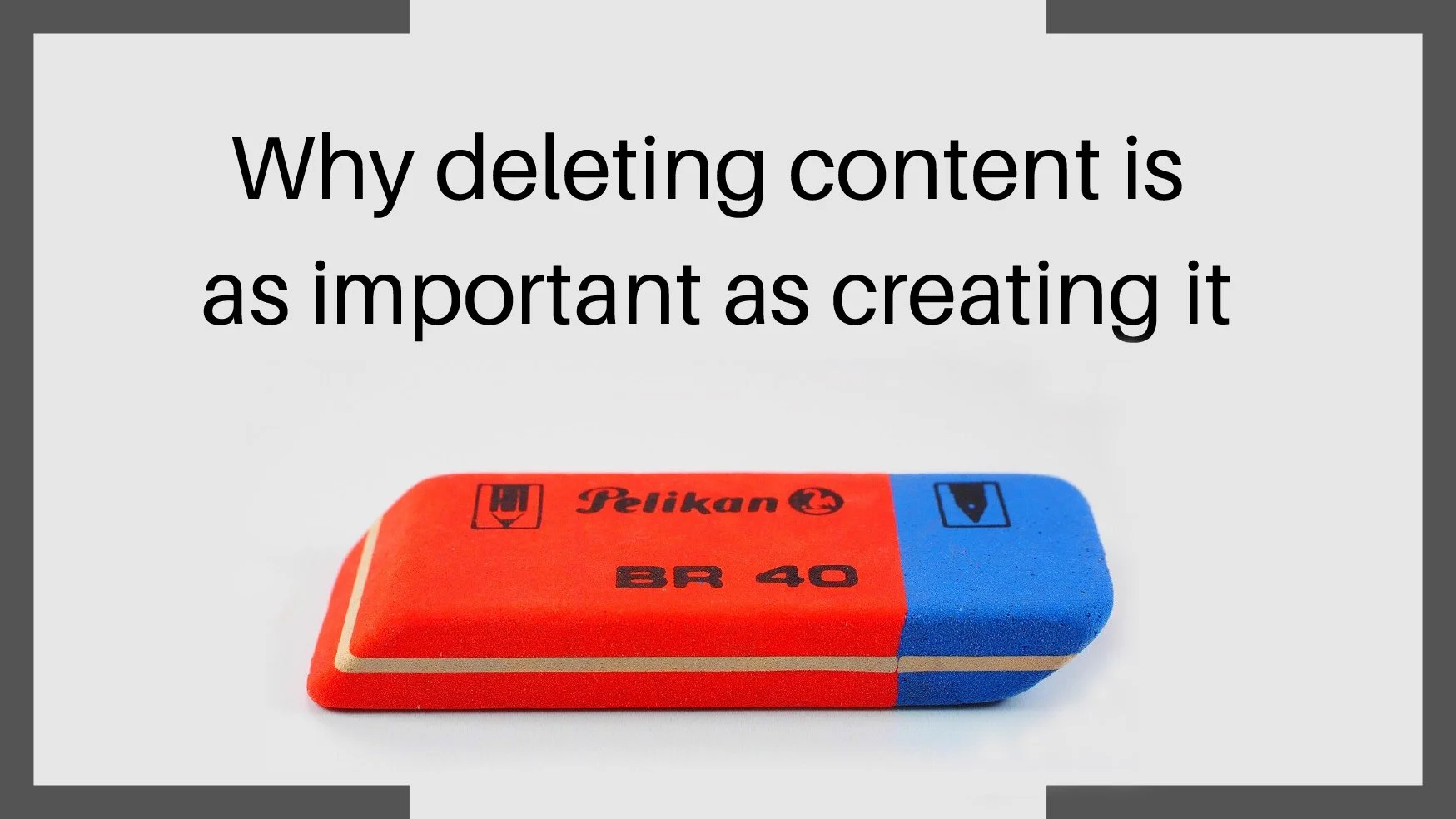Why deleting content is as important creating it
I know what you’re thinking…
You’re a content creator. Why on earth are you telling me to delete content from my website?
Bear with me and I’ll tell you why.
Imagine you’re looking for a local Instagram training course. You look it up on Google and – bang! There it is. It’s the top result in organic search and it’s taking place this month – in your town. Perfect!
You click on it and read through the course information. The course content is exactly what you’re looking for. No time to waste. You scroll straight down to the booking info to reserve your place.
Hang on a minute…
The course is dated January 2017! The info is completely out of date. You try the booking link to check if it’s just a typo. The link is broken. The page doesn’t exist.
The feeling of disappointment is real. You feel annoyed with the company for misleading you by leaving old information on their website.
You close the website and decide to ask a friend for a recommendation instead.
That business has missed out on a crucial sale.
Quality content is crucial
There’s no point adding stuff to your website if, when someone lands on it, what they read is neither relevant or valuable.
If you’re in the mood for a de-clutter, spend a few hours reviewing your website to improve the user experience. Ask yourself not just what needs updating or refreshing, but what you might remove to make your reader’s life that little bit easier.
Why is website user experience important?
One of the biggest challenges with managing websites is convincing people not to use their website as an archive. Here’s a typical conversation…
Me: ‘Why do you need to keep newsletters from six years ago on your website?’
Client: ‘Someone from the team might need to access the information’
Me: ‘That’s what a fileshare like Dropbox is for. Not your website.’
Client: ‘No, we need to keep them on the website. People are used to accessing them there.’
When people land on a website, they scan it to find what they’re interested in. They want to find what they’re looking for quickly and easily. Otherwise they will leave your website and go elsewhere.
As you go about your website de-clutter, take a few minutes to check through the following info.
Event information
Update your events page with current course and workshop information. If you have no events to share, remove the page until you do, or add a holding message to encourage people to sign up to your mailing list.
Links
Check these are not broken and link to the correct pages.
News
If you post regular news content, go through your archives and remove any articles that aren’t relevant or valuable. You know that article welcoming a new employee who’s since left the business? Hit delete!
Dated information
Be careful if your website automatically adds dates to content like testimonials and case studies. It can make things look very dated, very quickly. Testimonials would be better off posted without a date.
Blogs
Have you blogged about a piece of legislation that’s since changed? If you’re handing out free advice and guidance in this way, ensure all your posts are still relevant and up-to-date. Either refresh the content or remove it temporarily until you have time to do this.
Team pages
Check through your employee biographies and flag those that need deactivating, adding or updating.
About
If you have a timeline, update this with recent highlights and achievements, including awards wins.
Copyright information
Usually in the footer section, change the date every year so people can see your website is kept up-to-date.
Treat your website like you treat your home
A website is a lot like your home – it requires constant maintenance and attention but if you commit to doing this regularly, it becomes a much more welcoming place to hang out.
So you see, there is method in the madness of culling content from your website. Everyone benefits; the end user enjoys his or her experience of your website, your business reputation receives a boost, and Google revels in the fresh new content updates (which is great for SEO). And let’s face it, a good de-clutter leaves us all feeling super satisfied!
